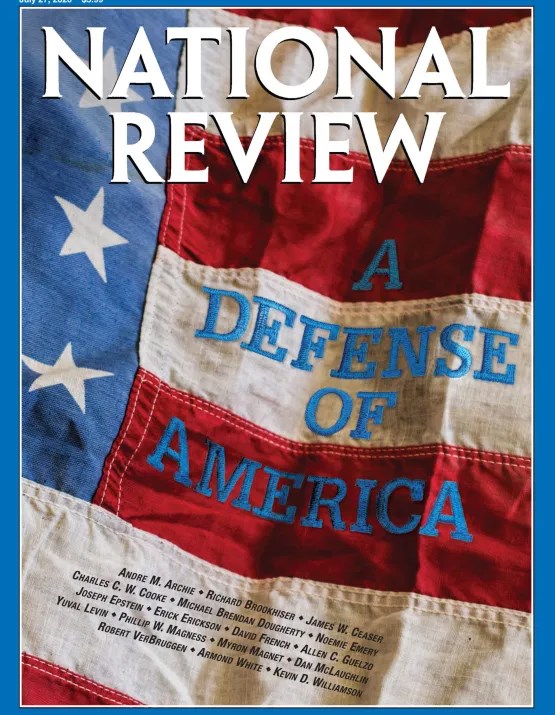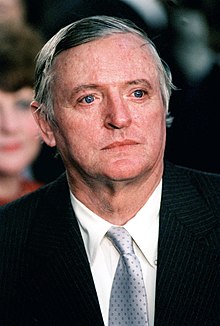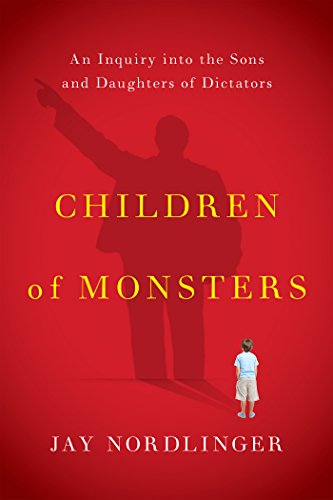
Akin to Superman, Jay Nordlinger splits his time between political opinion and the musical scene. We talk about an editor’s role, heirs of tyrants, and what he wants to learn.
Editing a publication such as National Review, opposite journalistic or nonfiction writing, is an art unto itself. Some might say editors relish grueling, often mundane mental toil. In what sense is the vocation intellectually stimulating?
It is stimulating to imagine pieces and commission them. It’s stimulating to work with fine writers (and even some un-fine ones). It can be stimulating to wrestle with language.
And to come up with illustrations to go with the pieces. And to title and market, or present, those pieces, etc.
It can be really satisfying to produce something valuable for people to read.


Along with public-affairs work, you critique music for The New Criterion. How do you balance divergent passions?
It’s like I have a day job and a night job. I do politics by day and music by night. I like the two assignments, or two vocations. I would not want to do just one or the other. All politics and no music makes Jack a dull boy, and vice versa.
Proposing questions through various mediums, from verbal exchanges to research-heavy explorations, is a chief component of your craft. Other than a thirst for understanding, why are you so curious?
I really don’t know. I guess I’m not curious about that! Much of William F. Buckley Jr.’s life was shaped by the desire not to be bored. Or a fear of being bored. He said so (eloquently).

Your latest book Children of Monsters surveys brutal dictators’ descendants. Who stood out – e.g., like-father-like-son, evilest, defied-the-odds good examples – and why?
Just about the worst of the sons and daughters of dictators was Uday Hussein, the elder of Saddam’s two sons. But was he really worse than Kim Jong-il, who took over from his father in North Korea? Or Kim Jong-un, the present tyrant? What about Bashar Assad?
The children I admire most are Svetlana Stalin and Alina Fernandez (a daughter of Fidel Castro). Each had a rebellion of conscience. Each defected. Each told the truth about what she had witnessed. All this was very hard. They were brave.
At our disposal we have finite resources, namely time and cognitive energy. Writers are no exception. Are there particular topics that you yearn to study but haven’t?
I wish I knew more about antiquity. I wish I knew Greek, Latin, and Hebrew (especially Greek). I wish I knew more about economics – I mean, the nuts and bolts (I know what I think philosophically). I definitely wish I knew more math (i.e., any math). I wish I would set aside time to learn German properly. I wish I had a proper appreciation of ice hockey (the major sport that is most foreign to me). I could go on, and on …

Learn more about Jay Nordlinger
- Wikipedia profile
- National Review author page and column archive
- The New Criterion music reviews
- National Review Institute bio
- Hillsdale Collegian interview
- Need to Know podcast
- Q&A podcast
- The Human Parade video interviews
Books by Jay Nordlinger
- Children of Monsters: An Inquiry into the Sons and Daughters of Dictators
- Peace, They Say: A History of the Nobel Peace Prize, the Most Famous and Controversial Prize in the World
- Here, There & Everywhere: Collected Writings of Jay Nordlinger
- Digging In: Further Collected Writings of Jay Nordlinger
Excerpt from Children of Monsters
“The real politician in the [Mussolini] family – after the dictator, of course – is Alessandra: a daughter of Romano and his first wife, Maria Scicolone; a niece of Sophia Loren. Today, she is a member of the European Parliament, and she has been a member of both houses of the Italian parliament: the chamber of deputies and the senate. Mouthy, outrageous, she is one of the most colorful politicians in a country known for colorful politics. Alessandra Mussolini is the Pasionaria of neo-Fascism. And that is the name she uses: Mussolini, though she has long been married to a man named Floriani.
“Earlier in her career, she was an actress, singer, and model. She appeared on the cover of Playboy (European editions): “The grit of Grandpa Benito, the sex appeal of Aunt Sophia Loren.” Among the movies in which she appeared was The Assisi Underground, about a priest who rescued Jews during the war. At first, she was cast as one of the Jews. But this caused an uproar – so she was recast as a nun, Sister Beata.”
Source: Children of Monsters
Jay Nordlinger is a National Review senior editor and music critic for The New Criterion.
Like learning from professional writers? Read our interviews with columnist Virginia Postrel, memoirist Judith Barrington, and bestselling authors Peter Golenbock and James C. Moore.